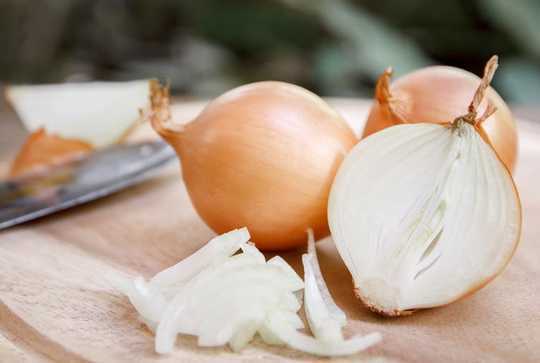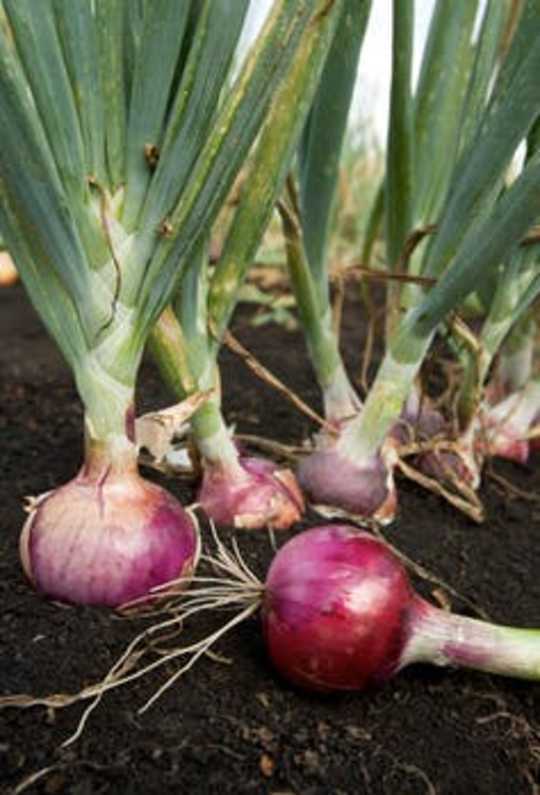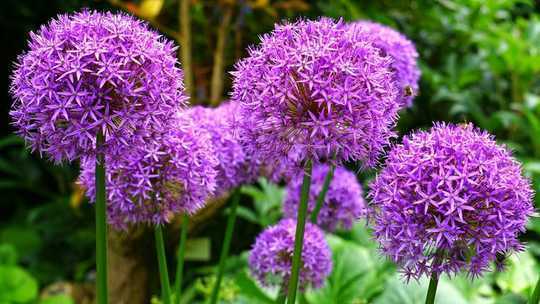 Need a handkerchief? Num LP Photo/Shutterstock
Need a handkerchief? Num LP Photo/Shutterstock
Onions are grown and used all over the world, and anyone who has cut into one knows that it can make you cry. This happens because onions release an irritating chemical that makes your eyes sting.
Onions are mostly water, plus some vitamins and sugar compounds. They also contain compounds that include sulfur, a natural chemical found in many smelly substances, such as skunk spray and garlic. This is one way that plants defend themselves – producing substances that repel creatures who might eat them. Other plants have thorns or stinging leaves, or are made of special cells that make them hard to chew.
 Red onion plants, showing their roots, stems and developing bulbs. USDA ARS/Stephen Ausmus
Red onion plants, showing their roots, stems and developing bulbs. USDA ARS/Stephen Ausmus
One sulfur compound in onions, called propyl sulfoxide, escapes into the air when you slice an onion. When it comes into contact with moisture, such as water vapor in the air or the natural moisture around your eyes, it changes into sulfuric acid. Sulfuric acid has a strong smell and irritates your eyes, so they make tears to wash it away.
Get The Latest By Email
There are some tricks to avoid this “emotional” onion experience. Next time you’re getting ready to dice an onion, start by cutting off and throwing away a little bit of the root end, which has lots of stringy little roots hanging from it. This lets most of the noxious sulfuric compounds, which are found in the root, escape. Then you can remove the pointy tip of the onion, peel its skin and slice it with fewer tears.
Some cooks chill onions for 30 minutes before they cut them, which helps because the sulfur compounds don’t escape into the air as easily when they’re cold.
 Ornamental alliums (related to onions) are a popular flower for sunny gardens. Mike/Pexels, CC BY
Ornamental alliums (related to onions) are a popular flower for sunny gardens. Mike/Pexels, CC BY
Onions add flavor to lots of our favorite foods, from spaghetti sauce to tuna salad, so don’t let the smell drive you away. And gardeners love to grow ornamental alliums – members of the onion family that are bred for their looks. Many are very attractive, with blooms that make balls of color on long straight stalks. And their onion-y smell helps fend off rabbits, deer and other animals looking for a tasty garden meal.
 About The Author
About The Author
Minda Daughtry, Extension Agency, Agriculture – Horticulture, North Carolina State University
This article is republished from The Conversation under a Creative Commons license. Read the original article.
books_food







